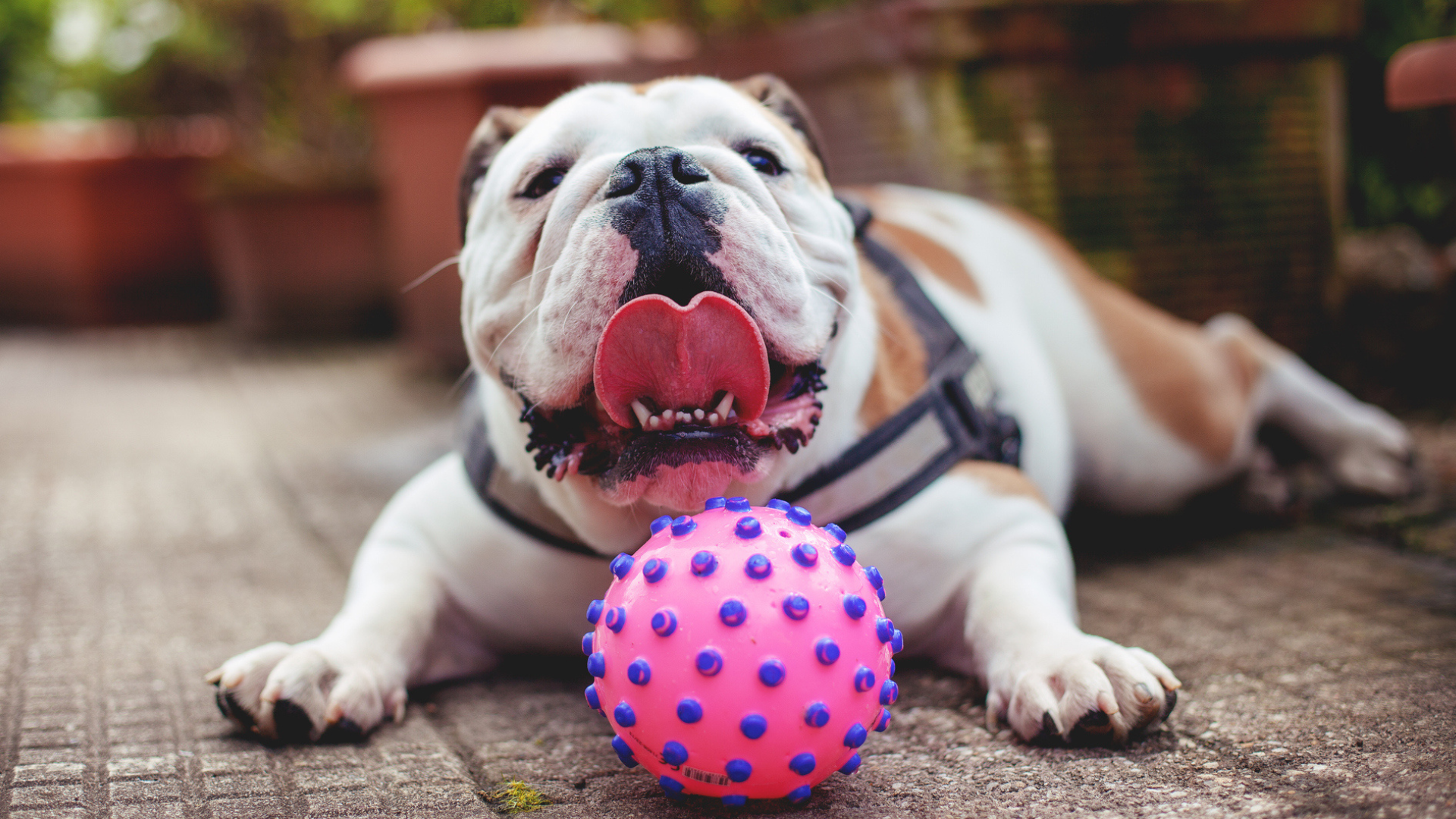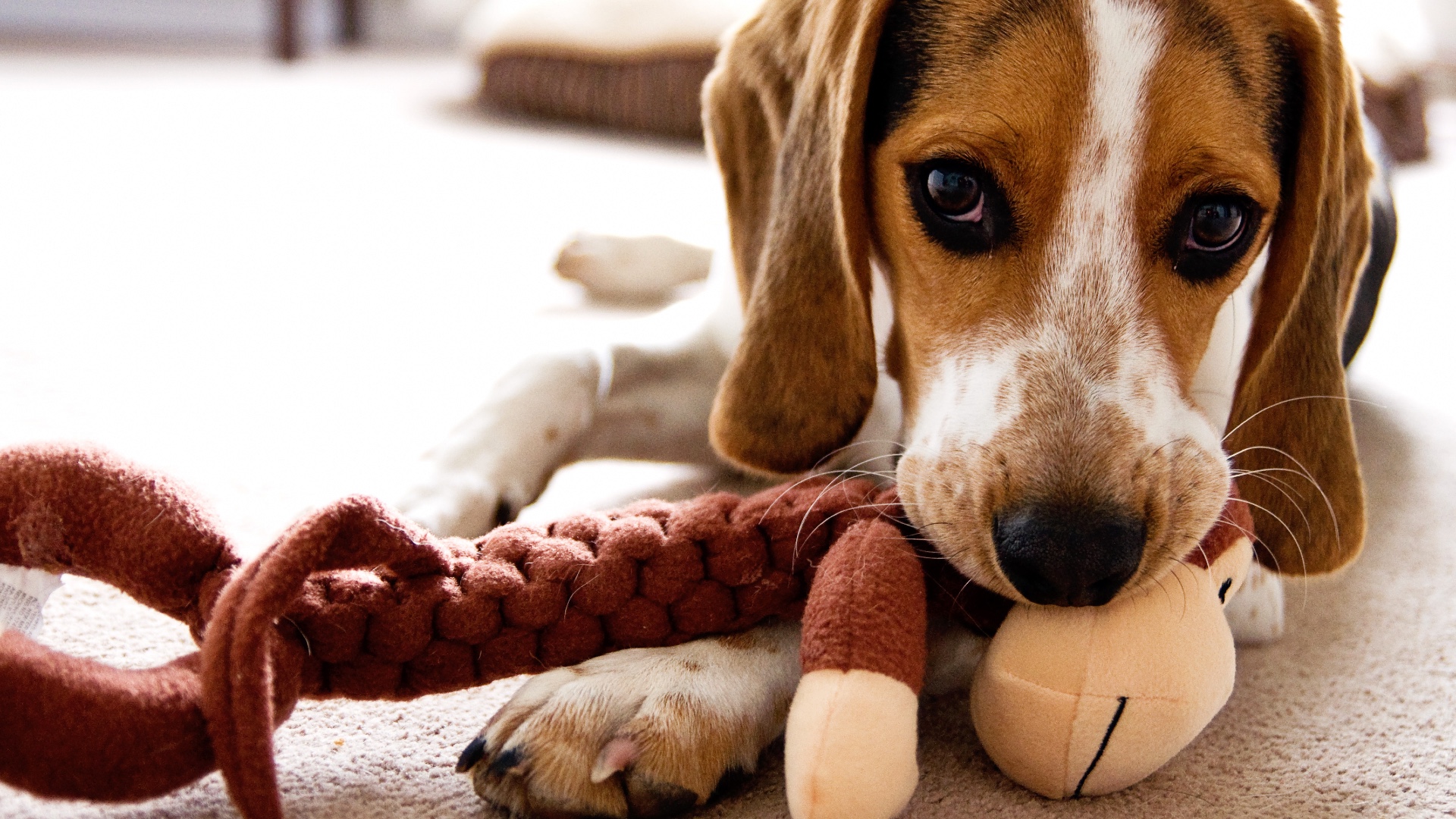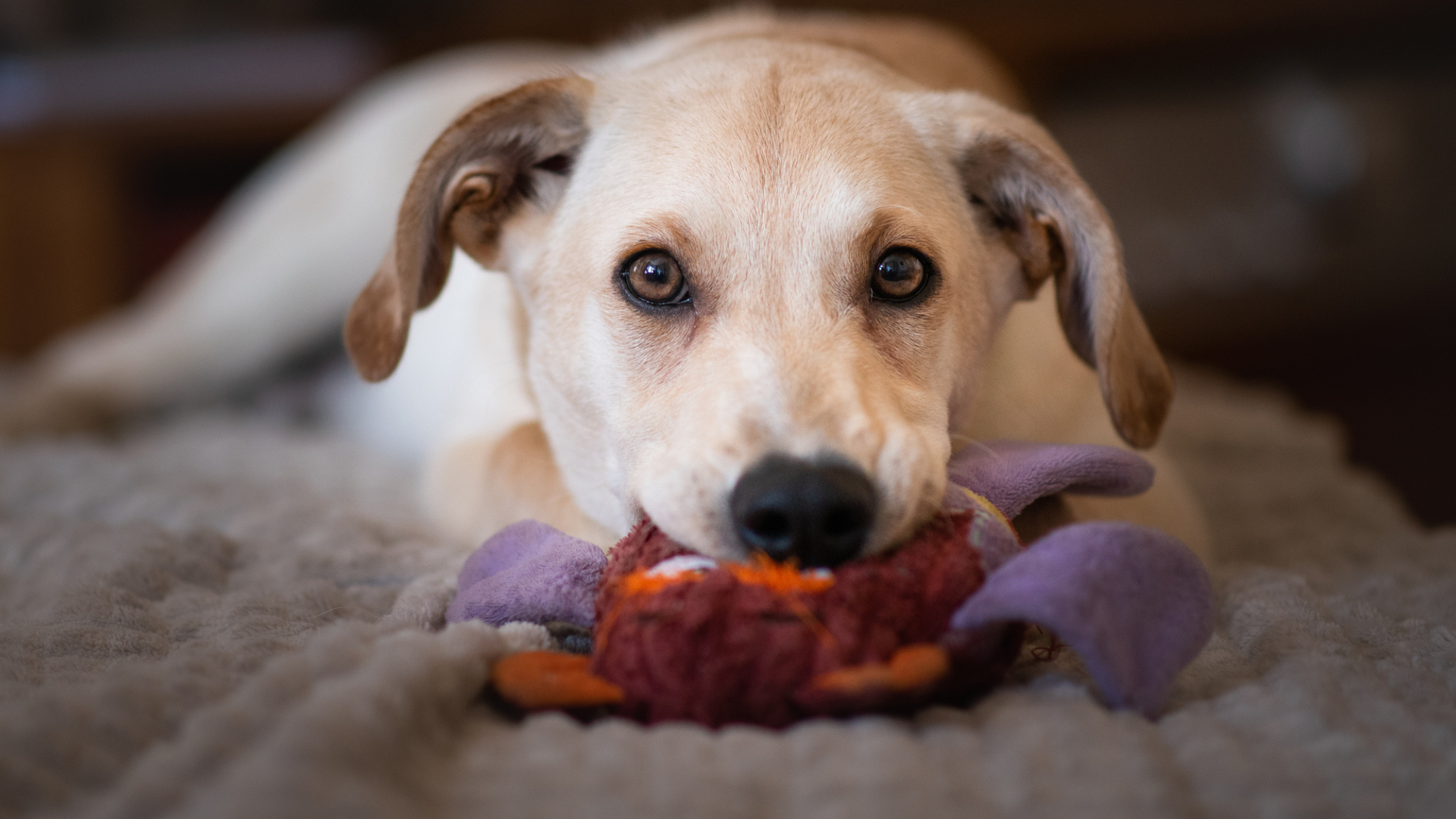Why do dogs lick toys?
Wondering, ‘Why do dogs lick toys?’ Here are 8 common reasons and whether it’s something to worry about.

If you find yourself questioning, ‘Why do dogs lick toys?’, then you’ve come to the right place. While licking isn’t out of the ordinary for our furry friends, you still might be curious as to why they’re doing it – especially if it’s a new behavior.
Once you’ve invested in some of the best dog toys, it shouldn’t come as a surprise if your pooch is giving them a little more attention. After all, who doesn’t like a brand new toy? However, if your dog is constantly licking them, then you’ll probably be left with lots of questions, like whether it’s something for concern.
The good news is that it doesn’t always mean that something is wrong with their health. Some dogs might choose to lick their toys because they want to explore – something that is very common for teething pups. However, it’s worth being aware of all the reasons as it could be a sign of doggy dementia, anxiety in dogs or canine compulsive disorder.
Below, we’ve listed all of the reasons why dogs lick toys to help you work it out. If you’re concerned about your pup’s behavior, we advise speaking with you vet for a proper diagnosis and guidance.
Why do dogs lick toys?
1. Hunger or thirst
While it may seem like a weird way to try and fill their tummies, your dog may lick their toy as a way of letting you know they’re hungry. This is particularly likely if the toy they’re licking is one that you’d normally fill with the best dog treats, so it could be their way of saying ‘I’m starving, please feed me!’
Thirst is also a common reason for licking toys as this helps to stimulate the salivary glands, which can help to get rid of dry mouth. If you notice your dog isn’t frequenting their water bowl as often as you’d like but keeps licking their toys, consider investing in one of the best pet water fountains to try and entice them to drink up.
2. Exploration
Before they can even open their eyes, puppies will start to explore the world with their tongues and mouths, a behavior that continues on into adulthood. Chewing and licking are great ways for dogs to get to know their surroundings and it’s particularly common in the early days when a puppy is teething.
If you have a young fur baby in the house, the best teething toys for puppies have been specially designed to let them lick away until their heart’s content, and for older dogs, a durable chew toy can provide the perfect surface for their tongue to explore.
3. Separation anxiety
Dealing with separation anxiety in dogs is something a lot of pet parents go through and believe it or not, licking their toy may be a sign that your dog is having trouble being away from you. This is particularly prevalent amongst pets at the moment as more people start to return to the office after long periods of working from home.
Alongside separation anxiety, there’s also general anxiety and this is another reason your dog could be licking their toys. Think about whether there have been any changes in your dog’s environment lately. Houseguests staying, a new pet, or a disruption in their routine can all be enough to trigger a stress response.
We recommend you speak with your vet if you’re concerned your dog’s licking behavior could be a result of anxiety. They’ll be able to properly diagnose your pooch and advise you on the best course of action.

4. Canine Compulsive Disorder
You may have heard of Obsessive-Compulsive Disorder (OCD) which causes some of us humans to have recurring thoughts that drive repetitive behaviors, but did you know there’s also a doggy version? It’s true! Canine Compulsive Disorder (CCD) is just as real and can cause repetitive compulsions, such as licking and pacing.
There’s nothing abnormal about your pooch licking their toys every now and then, but if you notice it happening regularly, CCD could be the reason. According to Dr. Jerry Klein, while it can affect all breeds, doberman pinschers, golden retrievers and labrador retrievers are particularly prone to developing compulsive licking behaviors.
5. Boredom
Boredom is a common problem for a lot of dogs and while some may deal with it by sleeping the day away or chewing up your furniture, others will take to excessive licking.
A good way to curb this behavior is to make sure your pup is getting plenty of physical and mental stimulation. Take them out for a good walk, play a game of fetch, or spend some quality time engaged in one of our favorite indoor games for dogs - perfect when it’s too wet to get outside.
If you need to leave your pooch on their own for a few hours, many of the best pet cameras double up as toys that also toss treats, which is a great way to help banish boredom. Leaving them with a challenging puzzle toy that has hidden treats inside can also make the hours whiz by.
6. Dementia
Often thought of as a human condition, doggy dementia affects up to 62% of canines between 11-16 years of age and can result in confusion, excessive barking, peeing and deficating around the house, and compulsive licking.
If you notice that your dog has only recently started licking their toys and it’s accompanied by other behavior that’s out of the ordinary, it’s worth speaking to your vet to see if your pooch may be suffering from a cognitive impairment.
The most important thing to remember is that your dog isn’t engaging in these behaviors deliberately, they truly can’t help it, so remaining calm and patient and avoiding punishing them will help them to feel less stressed and anxious.

7. Nausea
Who would have thought that feeling sick could be the reason behind your dog licking their toys, but believe it or not, it’s a fairly common reason you may spot them being more mouthy with their favorite plaything than they usually would be.
When your dog has a queasy tummy, either because they’ve eaten something unpleasant or they’re not feeling well, it can leave a yucky taste in their mouth that they’ll want to get rid of. Licking their toy will help them to get some of that bad tasting saliva out of their mouths.
8. Mouth problems
Licking could also be your dog’s way of wanting to relieve the pain that accompanies oral inflammation, which can happen when they’ve ingested and chewed on something sharp.
Gingivitis, which causes the gums to become inflamed and is the result of tartar buildup, can also become painful if left untreated. Make sure you get your pup’s teeth checked regularly, brush their teeth daily, and use the best dental chews for dogs to keep their chompers in tip-top condition.
Ever wondered why do dogs roll on their toys? Check out this feature for the reason. Or, if you want to find out why do dogs bring you toys and other gifts, take a look at this vet’s guide.
PetsRadar Newsletter
Get the best advice, tips and top tech for your beloved Pets

Kathryn is a freelance writer who has been a member of the PetsRadar family since it launched in 2020. Highly experienced in her field, she's driven by a desire to provide pet parents with accurate, timely, and informative content that enables them to provide their fur friends with everything they need to thrive. Kathryn works closely with vets and trainers to ensure all articles offer the most up-to-date information across a range of pet-related fields, from insights into health and behavior issues to tips on products and training. When she’s not busy crafting the perfect sentence for her features, buying guides and news pieces, she can be found hanging out with her family (which includes one super sassy cat), drinking copious amounts of Jasmine tea and reading all the books.
- Megan MilsteadStaff Writer
